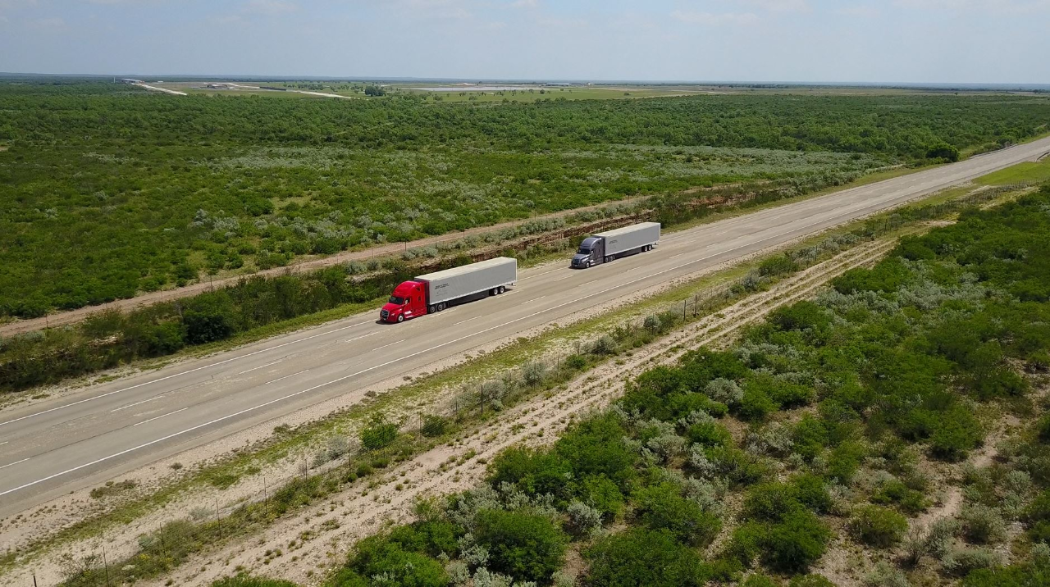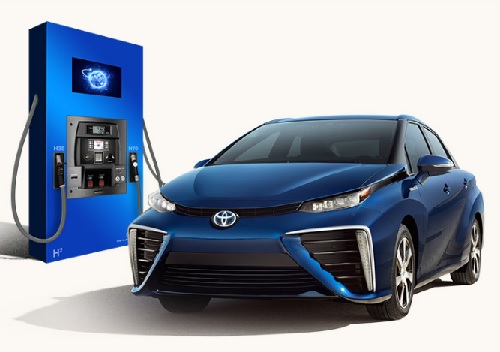Newsworthy stories: Tesla Inc. is slowly ramping up to meet its original production target for the Model 3, moving the 5,000 unit target into the second quarter. In its quarterly  statement this week, the company announced that it delivered 1,550 Model 3 small sedans in Q4 2017, up from 220 the previous quarter. Tesla expects to reach a 2,500 unit weekly rate by the end of the first quarter, and the 5,000 per week milestone by the end of the second quarter. It was a good quarter and year for the electric automaker, with 101,312 of the Model S and Model X vehicles delivered in 2017 – a 33% increase over 2016. It was the best quarter ever for Tesla, with 15,200 Model S and 13,120 Model X vehicles delivered, representing a 27% increase over Q4 2016. As for the new Model 3, the company will “continue to focus on quality and efficiency rather than simply pushing for the highest possible volume in the shortest period of time.”…………. Westport Fuel Systems Inc. has entered into a development and supply agreement with Tata Motors for their 4 cylinder and 6 cylinder natural gas spark-ignited commercial vehicle engines to meet the Indian government’s new Bharat Stage VI emission standards, scheduled to take effect in April of 2020. Westport Fuel Systems has been working with Indian automaker Tata Motors since 2012, most recently working together on developing their next generation of natural gas spark-ignited engines to meet the BS-VI emission standards. Upon completion of the program, Westport will be supplying the critical natural gas components to Tata Motors, including advanced gas injection systems and controls………….. CALSTART’s Clean Transportation Summit – California: 2030 will be taking place March 26-27 at the Sacramento Convention Center. This summit succeeds the Clean, Low Carbon Fuels Summit, which ran annually for the past five years with the purpose of building political support for the Low Carbon Fuel Standard (LCFS). The first day of this year’s summit kicks off with concurrent sessions focused on electrification, Low NOx Natural Gas Vehicles market development, voucher incentives, and opportunities and issues for autonomous, electric and connected vehicles. The day concludes with a reception followed by a full day of General Session programming. Early bird discount registration will end on January 25. Learn more about the event here…………… U.S. car owners now lease almost 80% of battery electric vehicles and 55 percent of plug-in hybrids, according to Bloomberg New Energy Finance. The lease rate for the country’s entire new vehicle purchases has been around 30% recently. However, Tesla does not reveal how many of its vehicles are leased. Consumers seem to be turning to leasing for the payment savings and because used vehicle values for electric vehicles have been weak in the marketplace. Consumers concerned about used vehicle values also tend to expect that the next generation of EVs with new technology and longer range will have stronger value on the used car market……………. California would ban the sale of new vehicles powered by fossil fuels in 2040 under legislation introduced Wednesday in the state Legislature. If passed, it would be a significant part of the state’s drive to reduce greenhouse gas emissions 80% from 1990 levels by 2050. The law would require that all new vehicles sold after Jan. 1, 2040, would be zero emission vehicles such as battery electric or hydrogen fuel cell vehicles. “We’re at an inflection point: we’ve got to address the harmful emissions that cause climate change,” said Democratic Assemblymember Phil Ting, the bill’s author.
statement this week, the company announced that it delivered 1,550 Model 3 small sedans in Q4 2017, up from 220 the previous quarter. Tesla expects to reach a 2,500 unit weekly rate by the end of the first quarter, and the 5,000 per week milestone by the end of the second quarter. It was a good quarter and year for the electric automaker, with 101,312 of the Model S and Model X vehicles delivered in 2017 – a 33% increase over 2016. It was the best quarter ever for Tesla, with 15,200 Model S and 13,120 Model X vehicles delivered, representing a 27% increase over Q4 2016. As for the new Model 3, the company will “continue to focus on quality and efficiency rather than simply pushing for the highest possible volume in the shortest period of time.”…………. Westport Fuel Systems Inc. has entered into a development and supply agreement with Tata Motors for their 4 cylinder and 6 cylinder natural gas spark-ignited commercial vehicle engines to meet the Indian government’s new Bharat Stage VI emission standards, scheduled to take effect in April of 2020. Westport Fuel Systems has been working with Indian automaker Tata Motors since 2012, most recently working together on developing their next generation of natural gas spark-ignited engines to meet the BS-VI emission standards. Upon completion of the program, Westport will be supplying the critical natural gas components to Tata Motors, including advanced gas injection systems and controls………….. CALSTART’s Clean Transportation Summit – California: 2030 will be taking place March 26-27 at the Sacramento Convention Center. This summit succeeds the Clean, Low Carbon Fuels Summit, which ran annually for the past five years with the purpose of building political support for the Low Carbon Fuel Standard (LCFS). The first day of this year’s summit kicks off with concurrent sessions focused on electrification, Low NOx Natural Gas Vehicles market development, voucher incentives, and opportunities and issues for autonomous, electric and connected vehicles. The day concludes with a reception followed by a full day of General Session programming. Early bird discount registration will end on January 25. Learn more about the event here…………… U.S. car owners now lease almost 80% of battery electric vehicles and 55 percent of plug-in hybrids, according to Bloomberg New Energy Finance. The lease rate for the country’s entire new vehicle purchases has been around 30% recently. However, Tesla does not reveal how many of its vehicles are leased. Consumers seem to be turning to leasing for the payment savings and because used vehicle values for electric vehicles have been weak in the marketplace. Consumers concerned about used vehicle values also tend to expect that the next generation of EVs with new technology and longer range will have stronger value on the used car market……………. California would ban the sale of new vehicles powered by fossil fuels in 2040 under legislation introduced Wednesday in the state Legislature. If passed, it would be a significant part of the state’s drive to reduce greenhouse gas emissions 80% from 1990 levels by 2050. The law would require that all new vehicles sold after Jan. 1, 2040, would be zero emission vehicles such as battery electric or hydrogen fuel cell vehicles. “We’re at an inflection point: we’ve got to address the harmful emissions that cause climate change,” said Democratic Assemblymember Phil Ting, the bill’s author.
VW adding to its automated mobility presence: The Volkswagen Group and self-driving technology company, Aurora Innovation, announced a strategic collaboration  ahead of the 2018 Consumer Electronics Show (CES) in Las Vegas. Aurora Innovation also signed a deal with Hyundai this week, similar to its alliance with VW, to bring its self-driving software into commercial use. Based in Palo Alto, Calif., and Pittsburgh, Penn., Aurora designs and builds self-driving technology, partnering with automakers to integrate, pilot and deploy advanced self-driving platforms into vehicles. Founded by CEO Chris Urmson, Chief Product Officer Sterling Anderson and Chief Technical Officer Drew Bagnell, Aurora is working to solve today’s most complex AI, automation and engineering challenges to improve transportation and positively impact cities. Urmson had played a leading role at Google’s self-driving car unit, before it became Waymo.
ahead of the 2018 Consumer Electronics Show (CES) in Las Vegas. Aurora Innovation also signed a deal with Hyundai this week, similar to its alliance with VW, to bring its self-driving software into commercial use. Based in Palo Alto, Calif., and Pittsburgh, Penn., Aurora designs and builds self-driving technology, partnering with automakers to integrate, pilot and deploy advanced self-driving platforms into vehicles. Founded by CEO Chris Urmson, Chief Product Officer Sterling Anderson and Chief Technical Officer Drew Bagnell, Aurora is working to solve today’s most complex AI, automation and engineering challenges to improve transportation and positively impact cities. Urmson had played a leading role at Google’s self-driving car unit, before it became Waymo.
The collaboration between VW and Aurora aims to bring self-driving electric vehicles in cities as Mobility-as-a-Service (MaaS) fleets. The collaboration will bring together a world-class engineering team to the ongoing development of software and hardware for driverless vehicles, and for mobility services for urban and rural areas. Cities can use the smart mobility solutions to help solve their traffic, pollution, and traffic safety challenges.
Automakers have been making serious investments in mobility and autonomous technology companies in the past two years. Ford acquired on-demand shuttle service Chariot in 2016 and then bought a majority stake in self-driving startup Argo.AI for $1 billion. Daimler now owns Hailo, MyTaxi, Taxibeat, and Ridescout. General Motors owns Cruise Automation and has a stake in Lyft.
Volkswagen’s MOIA division is preparing to bring mobility services to cities around the world. In early December, MOIA unveiled an all-electric car at the TechCrunch Disrupt Berlin event. It’s been designed to provide usable space for up to six passengers. It will make its official debut in service on roads beginning in Hamburg in 2018, where the company expects to put about 200 cars on the road at first. It’s based on ridesharing for users who seek to pool their vehicle use.

 driving cars with huge investments being made for that to take place, according to technologists like Tesla and Embark. Trucking companies may not be as optimistic about the fast pace. Tesla will be showcasing its electric truck with some autonomous capabilities, while Silicon Valley startup Embark has been testing its autonomous trucking technology in a three-way partnership with Ryder and appliance giant Electrolux. CB Insights reports that companies will place about $1 billion in commercial truck autonomous systems this year, 10 times the level of spending three years ago……….
driving cars with huge investments being made for that to take place, according to technologists like Tesla and Embark. Trucking companies may not be as optimistic about the fast pace. Tesla will be showcasing its electric truck with some autonomous capabilities, while Silicon Valley startup Embark has been testing its autonomous trucking technology in a three-way partnership with Ryder and appliance giant Electrolux. CB Insights reports that companies will place about $1 billion in commercial truck autonomous systems this year, 10 times the level of spending three years ago……….  up on fuel cell vehicles, but electric vehicles are in a stronger position for widespread adoption in the marketplace. “Elon Musk is right – it’s better to charge the electric car directly by plugging in,” he said.
up on fuel cell vehicles, but electric vehicles are in a stronger position for widespread adoption in the marketplace. “Elon Musk is right – it’s better to charge the electric car directly by plugging in,” he said.